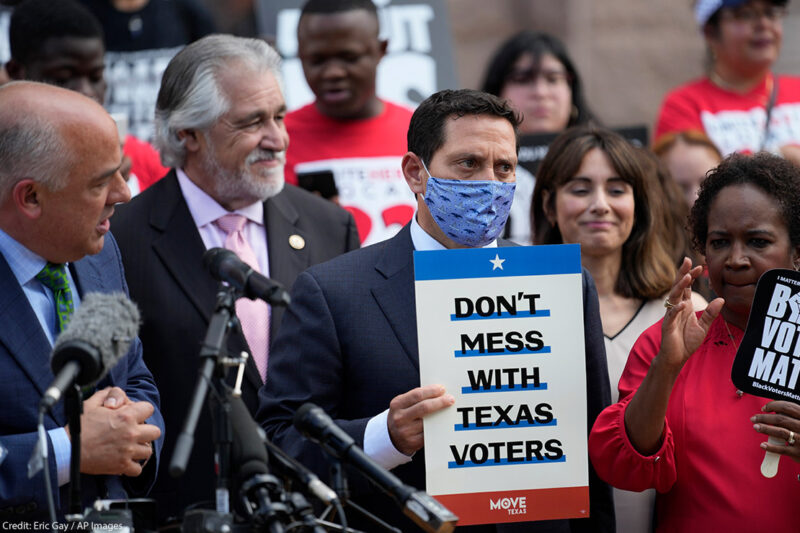The Texas Legislature's Culture War


On July 12, Texas House Democrats headed to Washington D.C. in a last resort attempt to deny Republicans the quorum they needed to pass restrictive voting measures during a special legislative session. The Democratic exodus not only stalled the GOP-led election bills, it also delayed Texas Gov. Greg Abbott’s longer agenda for this special session, including legislation to ban transgender youth in sports, further limit access to reproductive healthcare, and dictate how U.S. race history is taught in schools.
The Texas Democrats who fled said they aren’t returning until the special session expires on August 6, but Gov. Abbott said he will continue calling special sessions into next year. Legislative standoffs of this nature are very rare, but the Democrats went to Washington to block the full range of issues that were at stake in the special session.
Restrictive voting bills were the impetus for the Democrats’ stall tactic. Texas already has numerous voter suppression tactics in place when it comes to voter ID, registration, and vote-by-mail laws. The new voting bills seek to expand criminal penalties in the election code — penalties that disproportionately impact people of color. According to analysis from the ACLU of Texas, 72 percent of the prosecutions pursued by Texas’ election integrity unit were against people of color. Texas’ Republican leadership has transparently focused their voter suppression efforts on suppressing votes that tend to be more Democratic, thus targeting mor e voters of color.
Beyond election bills, attempts to censor discussions of race in the classroom are also at the forefront of Texas’ special session. Texas is just one of the many states involved in the national critical race theory debate in which various states are proposing and passing bills that seek to rob young people of an inclusive education while blatantly suppressing speech about race and gender.
In this week’s episode of At Liberty, Sarah Labowitz, policy and advocacy director at the ACLU of Texas, discusses the legislative standoff and the various civil rights and civil liberties at the center of this special legislative session.




